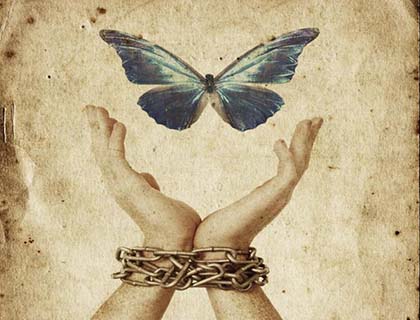Man is born free and can enjoy this right as an integral element of a dignified life. In order to enjoy freedom, a person should be free from inhibitions of the social structure in carrying out their free will. Freedom is enhanced by the ability of citizens to participate in their government and have their voice, interests and concerns recognized as valid and acted upon. Isaiah Berlin recognized two main types of liberty. Berlin described a statement such as “I am slave to no man” as one of Negative Liberty, that is, freedom from another individual’s direct interference. He contrasted this with a Positive Freedom statement such as “I am my own master”, which lays claim to a freedom to choose one’s own pursuits in life.
Charles Taylor’s clarification may be even more useful. Taylor explains that Negative Freedom is an “opportunity-concept”: one possesses Negative Freedom if one is not enslaved by external forces, and has equal access to a society’s resources. Positive Freedom, says Taylor, is an “exercise-concept”: possessing it might mean that one is not internally constrained; one must be able to act according to their highest self – according to reason.
Put in the simplest terms, one might say that a democratic society is a free society because it is a self-determined society, and that a member of that society is free to the extent that he or she participates in its democratic process. But there are also individualist applications of the concept of positive freedom. For example, it is sometimes said that a government should aim actively to create the conditions necessary for individuals to be self-sufficient or to achieve self-realization.
The International Covenant on Civil and Political Rights (ICCPR), which was adopted on 16 December 1966 and ratified by Afghanistan on 24 January 1983, includes the basic and integral rights of a man to be observed by the state members. Those rights are as:
- Physical integrity, in the form of the right to life and freedom from torture and slavery
- Liberty and security of the person, in the form of freedom from arbitrary arrest and detention.
- Procedural fairness in law, in the form of rights to due process, a fair and impartial trial, the presumption of innocence, and recognition as a person before the law.
- 4 - Individual liberty, in the form of the freedoms of movement, thought, conscience and religion,
speech, association and assembly, family rights, the right to a nationality and the right to privacy. - Prohibition of any propaganda for war as well as any advocacy of national or religious hatred that constitutes incitement to discrimination, hostility or violence by law.
- Political participation, including the right to vote.
- Non-discrimination, minority rights and equality before the law.
The ICCPR states in article 9 as, “Everyone has the right to liberty and security of person. No one shall be subjected to arbitrary arrest or detention. No one shall be deprived of his liberty except on such grounds and in accordance with such procedure as are established by law.” This article recognizes the rights to liberty and security of the person. It prohibits arbitrary arrest and detention, requires any deprivation of liberty to be according to law, and obliges parties to allow those deprived of their liberty to challenge their imprisonment through the courts. These provisions apply not just to those imprisoned as part of the criminal process, but also to those detained due to mental illness, drug addiction, or for educational or immigration purposes.
Moreover, item 1 article 18 of ICCPR declares, “Everyone shall have the right to freedom of thought, conscience and religion. This right shall include freedom to have or to adopt a religion or belief of his choice, and freedom, either individually or in community with others and in public or private, to manifest his religion or belief in worship, observance, practice and teaching.” In item 2 and 3 it says, “No one shall be subject to coercion which would impair his freedom to have or to adopt a religion or belief of his choice. Freedom to manifest one's religion or beliefs may be subject only to such limitations as are prescribed by law and are necessary to protect public safety, order, health, or morals or the fundamental rights and freedoms of others.” Finally, in item 4 it adds, “The States Parties to the present Covenant undertake to have respect for the liberty of parents and, when applicable, legal guardians to ensure the religious and moral education of their children in conformity with their own convictions.”
It is said in the permeable of the Constitution of Afghanistan,” … Form a civil society void of oppression, atrocity, discrimination as well as violence, based on rule of law, social justice, protecting integrity and human rights, and attaining peoples’ freedoms and fundamental rights ….” Furthermore, article 7 says, The state shall observe the United Nations Charter, inter-state agreements, as well as international treaties to which Afghanistan has joined, and the Universal Declaration of Human Rights….”
Although the integral sources of the Afghanistan’s law root in Islamic sharia which hold human and his rights, including the rights to freedom, in high esteem and also our country has ratified the Universal Declaration of Human Rights (UDHR) and ICCPR, yet the human rights are violated to a large extent and people’s freedoms are disturbed in one way or another. Hope the Executive Power act more seriously and protect the rights of the citizens that include freedom – which is one of the basic rights of each citizen.

